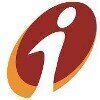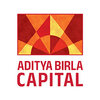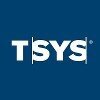Filter interviews by
Joindre Capital Interview Questions and Answers
Be the first one to contribute and help others!
Interview questions from similar companies

Business Accountability Associate Interview Questions & Answers
Wells Fargoposted on 7 Jan 2025
Underwriting. Personal Information
What is your full name, Social Security Number, and date of birth?
Are you a U.S. citizen or permanent resident?
Why they ask: To verify your identity and eligibility for a mortgage.
2. Income and Employment
What is your annual income?
Are you employed, self-employed, or retired?
How long have you been at your current job?
Why they ask: To ensure you have a steady income to repay the loan.
3. Credit History
What is your credit score?
Do you have any outstanding loans, credit card debt, or missed payments?
Have you ever declared bankruptcy or had a foreclosure?
Why they ask: To assess your ability and reliability to repay the loan.
4. Assets and Savings
How much money do you have in savings, investments, or retirement accounts?
Do you own any other properties or assets?
Why they ask: To confirm you have enough funds for a down payment, closing costs, and emergency reserves.
5. Property Details
What is the purchase price of the home?
Are you buying a primary residence, second home, or investment property?
What is the home’s address and type (e.g., single-family, condo)?
Why they ask: To evaluate the value and purpose of the property as collateral for the loan.
6. Debts and Expenses
What are your monthly expenses, including rent, utilities, and other bills?
Do you owe child support or alimony?
Why they ask: To calculate your debt-to-income (DTI) ratio and ensure you can afford the mortgage payments.
7. Down Payment
How much are you planning to put down as a down payment?
Are the funds coming from your savings or a gift?
Why they ask: To verify you have a sufficient down payment and its source is legitimate.
8. Insurance and Taxes
Do you have homeowners insurance lined up?
Are you aware of the property taxes in the area?
(1 Question)
- Q1. Previous Employment

Fullstack Java Developer Interview Questions & Answers
JPMorgan Chase & Co.posted on 7 Jan 2025
I applied via Recruitment Consulltant and was interviewed in Dec 2024. There were 2 interview rounds.
(1 Question)
- Q1. Questions related to backend and AWS.
(1 Question)
- Q1. Question related to front end and database.
Interview Preparation Tips
- DSA
- Bootstrap
- Javascript
- Redshift
- Django
- kubernate
- Python

I applied via Campus Placement and was interviewed before Jan 2024. There were 4 interview rounds.
Two data structure and algorithms questions, and one SQL query question.
(2 Questions)
- Q1. Linked list cycle detection, Uses of stack and heap
- Q2. Project related questions
(2 Questions)
- Q1. Project related questions
- Q2. Coin distribution, merge K sorted lists
(2 Questions)
- Q1. Expectations from the company
- Q2. Personal experience that showed strength and weakness
Interview Preparation Tips

I was interviewed in Nov 2024.
Here’s a simple framework to approach a case study effectively:
---
Case Study Framework
1. Understand the Problem
Read the case thoroughly and identify the key issue.
Ask clarifying questions if needed (if in a live setting).
Summarize the problem in your own words.
2. Analyze the Situation
SWOT Analysis (Strengths, Weaknesses, Opportunities, Threats)
Identify relevant stakeholders.
Gather data or key insights from the case text.
3. Identify Alternatives
Brainstorm possible solutions to the problem.
Consider multiple approaches (e.g., short-term vs. long-term solutions).
4. Evaluate the Alternatives
Weigh the pros and cons of each solution.
Assess feasibility, costs,
(2 Questions)
- Q1. What are the common performance issues that can occur in a system?
- Ans.
Common performance issues in a system include slow response times, high resource usage, bottlenecks, and crashes.
Slow response times can be caused by inefficient code, network latency, or overloaded servers.
High resource usage can lead to system slowdowns and crashes, often caused by memory leaks or inefficient algorithms.
Bottlenecks occur when a component of the system becomes a limiting factor, such as a database ser...
- Q2. What is your experience with software bug fixing?
- Ans.
I have experience in identifying and resolving software bugs through thorough testing and collaboration with developers.
Identifying bugs by reproducing issues reported by users
Collaborating with developers to understand root cause of bugs
Testing bug fixes to ensure they are effective
Utilizing bug tracking tools like Jira or Bugzilla
Experience with regression testing to prevent reoccurrence of bugs
Shortcut Tips for Coding Tests: 1. Master the Basics: Familiarize yourself with arrays, strings, loops, and conditional statements. 2. Learn Patterns: Concentrate on sliding window, two-pointer techniques, recursion, and divide-and-conquer methods. 3. Use Standard Algorithms: Study breadth-first search (BFS), depth-first search (DFS), sorting algorithms, and dynamic programming principles. 4. Understand Data Structures: Practice with stacks, queues, linked lists, and trees. 5. Practice Edge Cases: Consider scenarios involving empty inputs, duplicates, and large datasets. 6. Write Pseudocode: Outline your plan before starting to code. 7. Optimize Early: Always strive for efficiency in your solutions.
Interview Preparation Tips
1. Know Your Strengths: Identify skills and tailor your resume.
2. Network: Leverage LinkedIn, industry events, and connections.
3. Customize Applications: Align resumes and cover letters to job descriptions.
4. Prepare for Interviews: Research companies and practice answers.
5. Upskill: Learn in-demand tools, certifications, and soft skills.
6. Stay Organized: Track applications and follow-ups.
7. Be Positive: Handle rejections as learning opportunities.
8. Leverage Social Media: Optimize LinkedIn and maintain professionalism online.
9. Consider All Opportunities: Explore freelance, contract, or adjacent roles.
10. Follow Up: Send thank-you notes and stay connected with recruiters.
Stay consistent and persistent—your opportunity is ahead!

I applied via campus placement at Kumaraguru College of Technology, Coimbatore and was interviewed in Nov 2024. There were 2 interview rounds.
The group discussion was conducted on the basic topic of "Education System in India." After announcing the topic, the HR provided three minutes for preparation, during which participants were allowed to take notes. Subsequently, each person spoke about the topic for 30 seconds. Following the individual presentations, a three-minute discussion took place among the members.
(4 Questions)
- Q1. What is meant by securities?
- Ans.
Securities are financial instruments that represent ownership or debt in a company or government entity.
Securities can include stocks, bonds, options, and futures.
They are bought and sold on financial markets.
Investors purchase securities as a way to potentially earn a return on their investment.
Securities can be issued by corporations, governments, or other organizations.
They provide investors with the opportunity to ...
- Q2. What is meant by the repo rate and reverse repo rate?
- Ans.
Repo rate is the rate at which the central bank lends money to commercial banks, while reverse repo rate is the rate at which the central bank borrows money from commercial banks.
Repo rate is used by the central bank to control inflation and money supply in the economy.
Reverse repo rate is used to absorb excess liquidity from the market.
Changes in repo rate and reverse repo rate influence the interest rates in the econ...
- Q3. What is the difference between stocks and mutual funds?
- Ans.
Stocks represent ownership in a single company, while mutual funds pool money from multiple investors to invest in a diversified portfolio of stocks, bonds, or other securities.
Stocks represent ownership in a single company, giving investors the potential for high returns but also higher risk.
Mutual funds pool money from multiple investors to invest in a diversified portfolio of stocks, bonds, or other securities, redu...
- Q4. Can you provide an introduction about yourself and share details about your family background?
- Ans.
I am a Relationship Manager with a strong background in finance and customer service. My family is supportive and close-knit.
Experienced Relationship Manager in finance industry
Skilled in customer service and building client relationships
Close-knit and supportive family background
Interview Preparation Tips
- NISM VA
- NISM VII
- NISM VIII

Internal Auditor Interview Questions & Answers
Motilal Oswal Financial Servicesposted on 13 Dec 2024
I applied via Recruitment Consulltant and was interviewed in Nov 2024. There was 1 interview round.
(5 Questions)
- Q1. Tell me about yourself.
- Ans.
Experienced internal auditor with a background in finance and risk management.
Over 5 years of experience in internal auditing
Strong background in finance and risk management
Skilled in conducting audits, identifying risks, and implementing controls
Proficient in analyzing financial data and preparing reports
Excellent communication and interpersonal skills
- Q2. Family background
- Q3. What activities did you engage in during your articleship?
- Ans.
During my articleship, I engaged in various activities such as auditing financial statements, conducting internal control reviews, and assisting in risk assessment.
Auditing financial statements
Conducting internal control reviews
Assisting in risk assessment
- Q4. What is the process of conducting an internal audit?
- Ans.
The process of conducting an internal audit involves planning, executing, reporting, and follow-up.
Plan the audit by defining objectives, scope, and methodology.
Gather relevant data and evidence through interviews, document reviews, and observations.
Analyze the data to identify risks, control weaknesses, and areas for improvement.
Report findings to management and recommend corrective actions.
Follow up on implementation...
- Q5. What is the difference between internal and statutory audits?
- Ans.
Internal audits are conducted by internal staff to evaluate and improve the effectiveness of risk management, control, and governance processes within an organization, while statutory audits are required by law and are conducted by external auditors to ensure compliance with financial reporting standards.
Internal audits are conducted by internal staff, while statutory audits are conducted by external auditors.
Internal ...

I applied via LinkedIn and was interviewed in Nov 2024. There were 2 interview rounds.
Basic qsns and answers and personality test
(5 Questions)
- Q1. Family background question
- Q2. My hobbies and other things
- Q3. Discussion on family
- Q4. Work and course related
- Q5. Fresher so basic questions

Management Trainee Marketing Interview Questions & Answers
Aditya Birla Capitalposted on 5 Dec 2024
It was not difficult,Basic questions are there.
Topic they are giving related to current situations.
(1 Question)
- Q1. Questions are same like other interviews but most of the time they will give you case study.
(1 Question)
- Q1. In this round questions are related to your Knowlledge and interest in job.
Interview Preparation Tips

Fraud Analyst Interview Questions & Answers
TSYS|Total System Servicesposted on 5 Jan 2025
I applied via Job Portal and was interviewed before Jan 2024. There were 2 interview rounds.
(1 Question)
- Q1. Basic questions- Background and visa, previous experience.
(1 Question)
- Q1. Basic questions regarding customer service situations, types of scams and fraud on credit cards.
Interview Preparation Tips
- Credit Cards
- Scams
- fraud

I applied via campus placement at Birla Institute of Technology and Science (BITS), Pilani and was interviewed in Sep 2024. There was 1 interview round.
(5 Questions)
- Q1. Introduce yourself
- Ans.
I am a skilled DOT NET Developer with 5 years of experience in developing web applications and software solutions.
5 years of experience in DOT NET development
Proficient in developing web applications and software solutions
Strong knowledge of C#, ASP.NET, MVC, and SQL Server
Experience with front-end technologies like HTML, CSS, and JavaScript
Familiar with Agile development methodologies
- Q2. Explain your projects
- Ans.
I have worked on various projects including e-commerce websites, inventory management systems, and data analysis tools.
Developed e-commerce website using ASP.NET MVC and SQL Server for backend
Implemented inventory management system using C# and Entity Framework
Created data analysis tool using LINQ and JavaScript for frontend
- Q3. Brief the OOPS concepts used in your projects
- Ans.
OOPS concepts used in projects include inheritance, encapsulation, polymorphism, and abstraction.
Inheritance: Reusing code by creating a new class based on an existing class.
Encapsulation: Restricting access to certain components of an object.
Polymorphism: Objects of different classes can be treated as objects of a common superclass.
Abstraction: Hiding the implementation details and showing only the necessary features.
- Q4. What do you know about SQL
- Ans.
SQL is a programming language used for managing and manipulating databases.
SQL stands for Structured Query Language
It is used to communicate with databases to perform tasks like querying data, updating data, and creating databases
Common SQL commands include SELECT, INSERT, UPDATE, DELETE
SQL is used in various database management systems like MySQL, SQL Server, Oracle
- Q5. Logical question
Interview Preparation Tips
- MERN
- C#
- Dot net
Skills evaluated in this interview
Tell us how to improve this page.
Interview Questions for Popular Designations
- Executive Interview Questions
- Team Lead Interview Questions
- Software Developer Interview Questions
- Associate Software Engineer Interview Questions
- Java Developer Interview Questions
- Data Analyst Interview Questions
- Senior Software Engineer Interview Questions
- System Engineer Interview Questions
- Show more
Interview Questions from Similar Companies

Bajaj Finserv

Wells Fargo

JPMorgan Chase & Co.

Motilal Oswal Financial Services
Calculate your in-hand salary
- Home >
- Interviews >
- Joindre Capital Interview Questions

